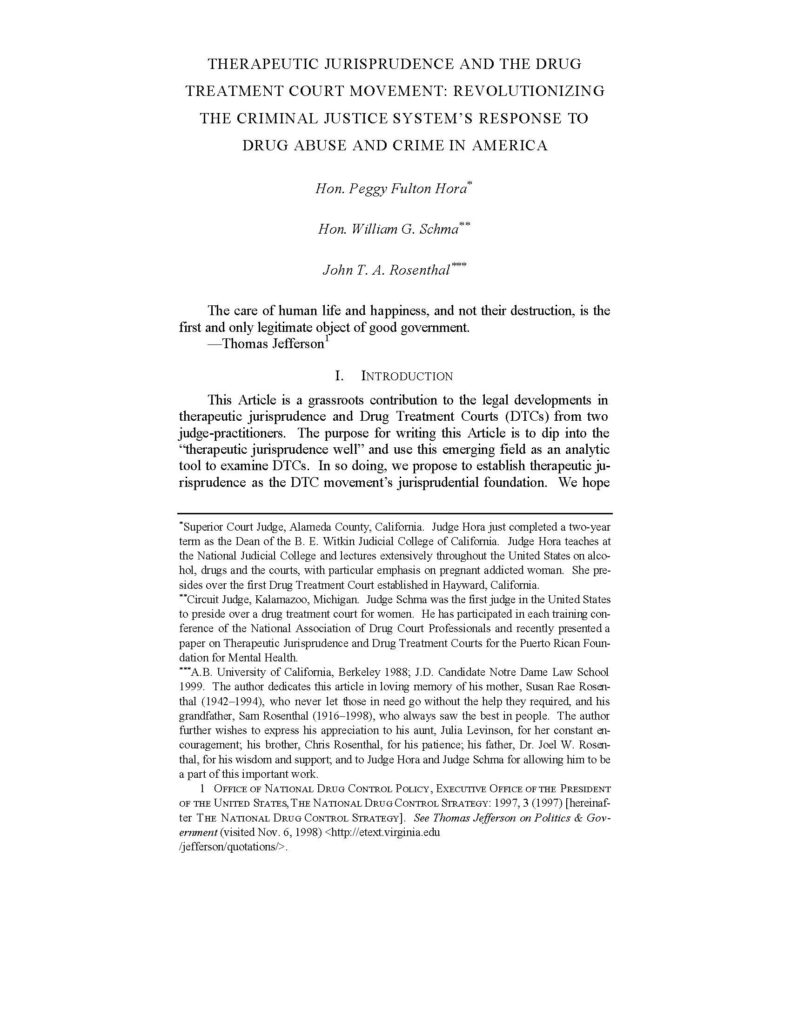Essential Readings
Below are several readings and multimedia resources that together serve as the foundation for the work done by treatment court programs. If you’re new to treatment courts, we highly recommend that you read/listen/watch each of these (regardless of your specific role). Together, these resources will provide you with detailed information on how treatment courts represent a departure from the traditional criminal justice system and embody the principles of therapeutic jurisprudence and rehabilitation. If you’ve been a member of a treatment court team, we would recommend that you periodically re-read these materials as a refresher.
Adult Treatment Court Best Practice Standards
These standards, created based on evidence-based practices and proven methods, serve as a blueprint for operating effective treatment courts. The updated edition incorporates best practices discerned over the past decade in a range of adult treatment court models, addresses frequently asked questions from the field, builds on the experiences and observations of All Rise faculty and audiences, and provides in-depth commentary and practical tips to help programs implement best practices in their day-to-day operations.
Defining Drug Courts: The Key Components
Originally assembled in 1997, this document lists the ten elements of treatment courts that are crucial to their success, highlighting the importance of interaction with the drug court team, substance use monitoring and testing, and fostering community partnerships.
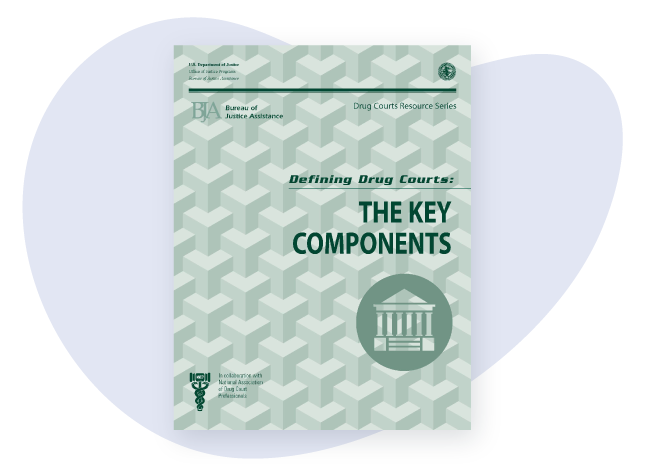
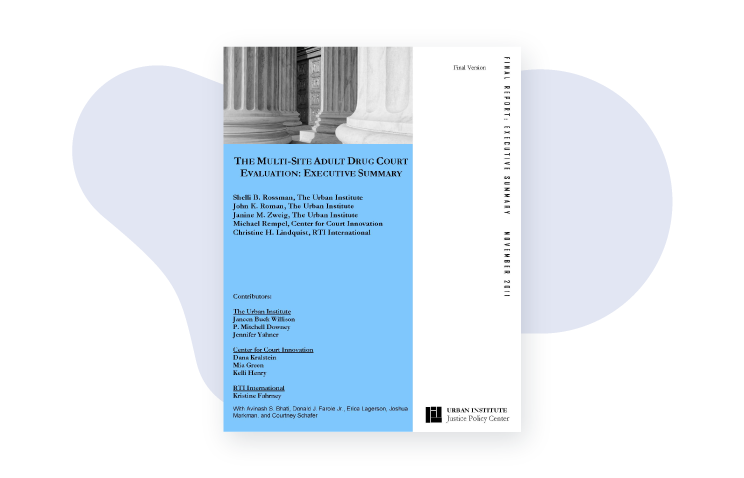
Multi-site Adult Drug Court Evaluation
Conducted collaboratively by the National Institute of Justice (NIJ), Urban Institute’s Justice Policy Center (UI-JPC), RTI International (RTI), and the Center for Justice Innovation (CJI), this 2003 evaluation spanned multiple adult drug courts. The 4-part report outlines the research design, key findings, cost-benefit evaluations, and explores benefits of certain practices.
Selecting and Using Risk and Need Assessments
Focusing on treatment courts targeting high-risk high-need participants, this fact sheet published by the National Drug Court Institute (NDCI) is designed to inform practitioners of issues relating to offender risk and how to measure it.
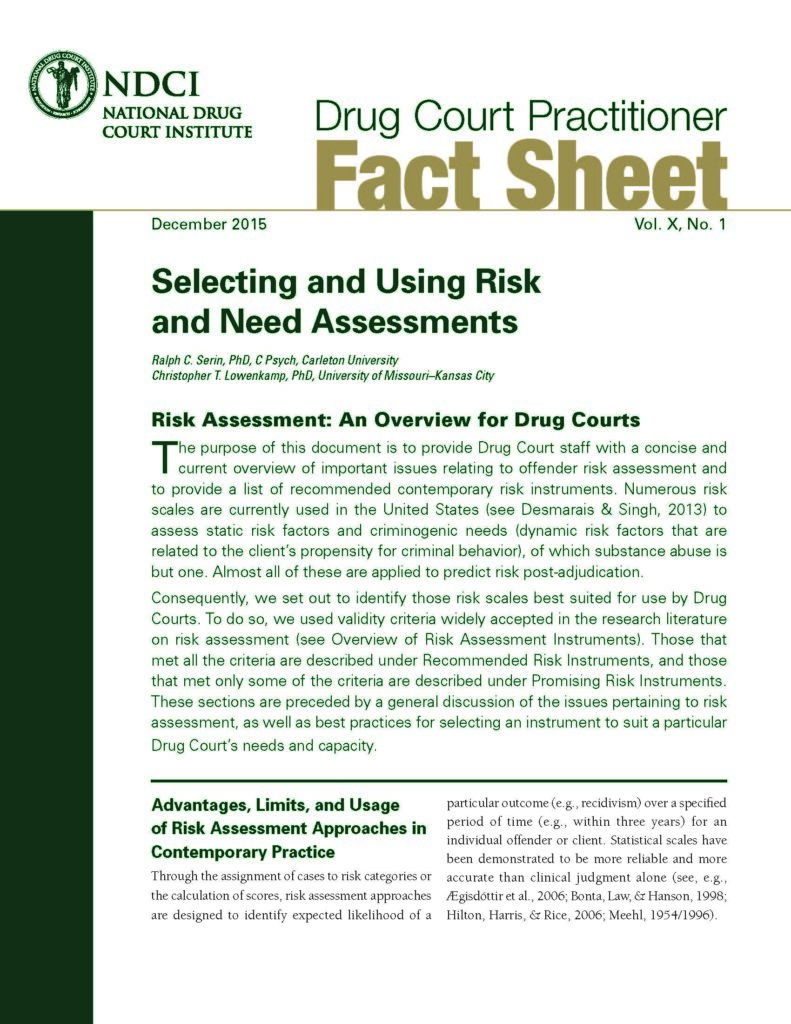
Equity and Inclusion Toolkit and Assessment
The National Drug Court Institute has assembled a tool to assist programs in determining equity and inclusion among treatment court participants. Taking into consideration age, gender, race and ethnicity in addition to admission and graduation rates, the assessment tool helps to identify gaps in these areas so that courts may take steps to resolve them.
Enhancing Motivation for Change in Substance User Disorder Treatment
The purpose of SAMHSA’s Treatment Improvement Protocol series is to provide science-based processes to treatment court field practices. This installment demonstrates motivational enhancement techniques for counselors working with participants with substance use disorders.
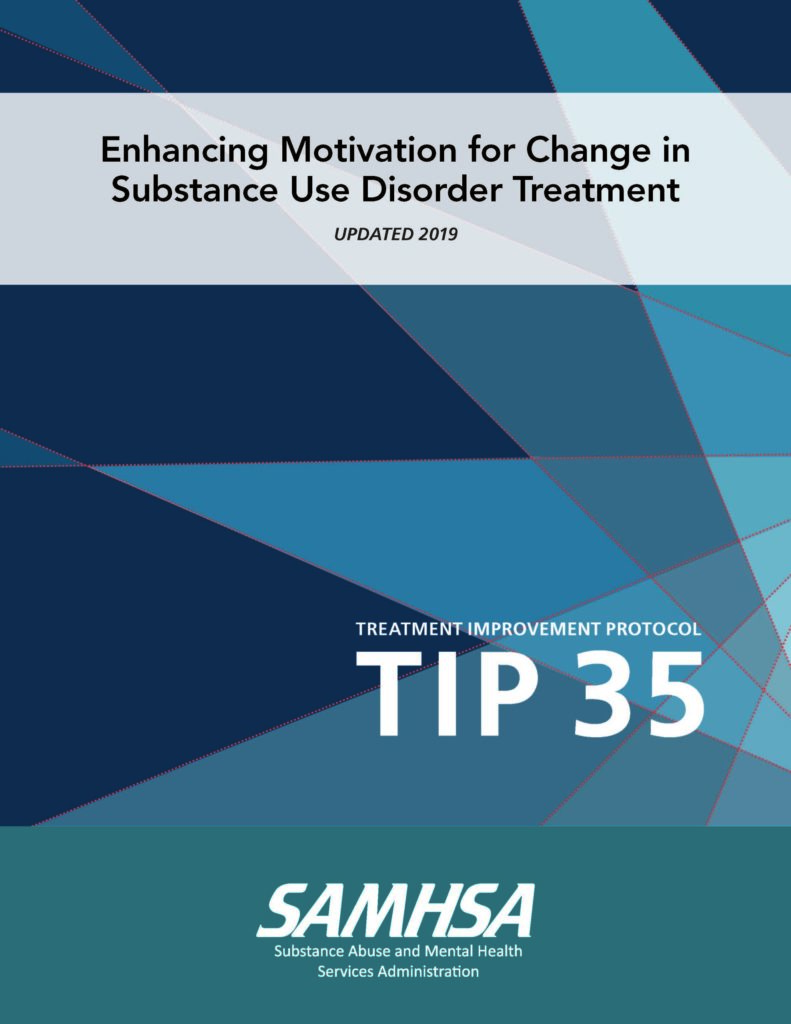
Quality Improvement for Drug Courts: Evidence-Based Practices
NDCI has combined the Ten Key Components of drug courts with proven operational and treatment methods to produce recommendations for best evidence-based practices.
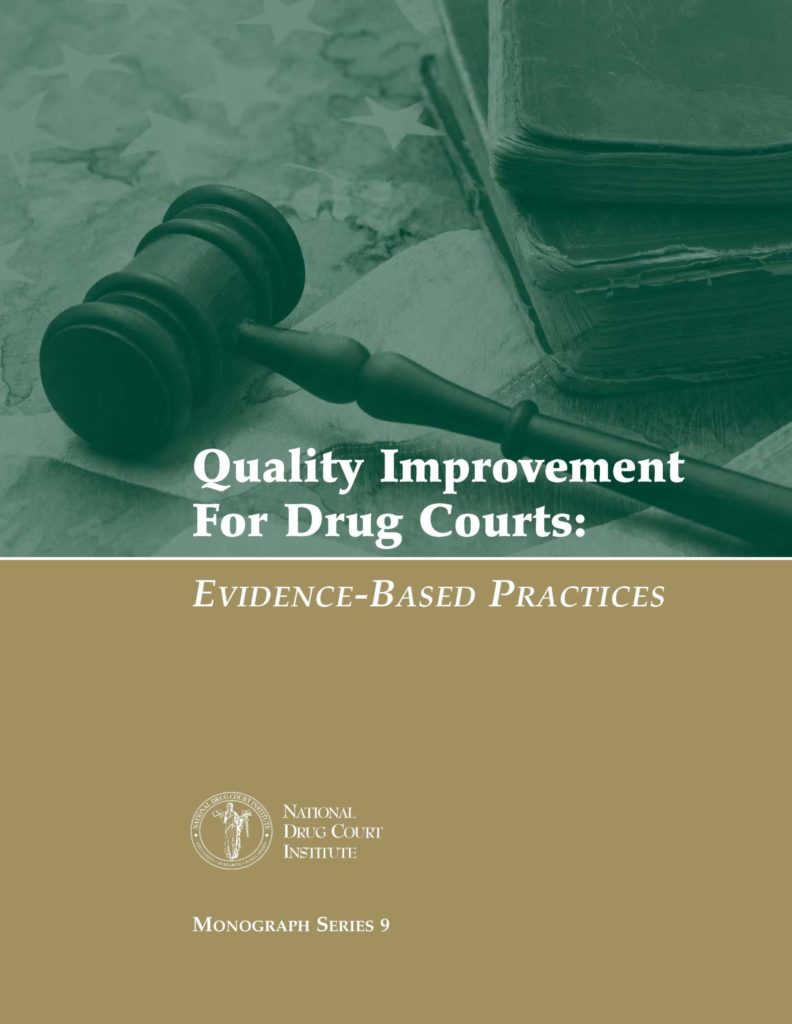
Therapeutic Jurisprudence and the Drug Treatment Court Movement
Written by practitioners from the field, this article suggests methods for utilizing therapeutic jurisprudence as a tool to analyze drug treatment courts. Learn more about what therapeutic jurisprudence is, the history of the subject, and other resources for applying it
